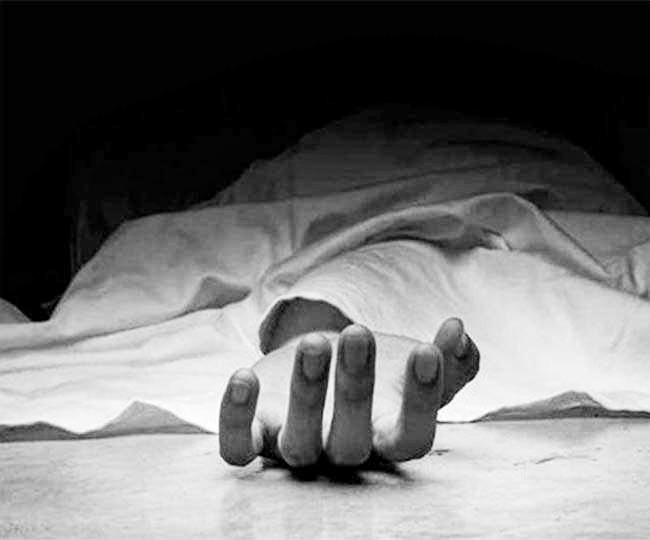Headlines
Woman sentenced to death for blasphemy in Pakistan amid ongoing human rights concerns

Quetta [Pakistan], September 20 (ANI): A woman was sentenced to death on Thursday under the Pakistan Prevention of Electronic Crimes Act (PECA) in a blasphemy case. Judge Mohammad Afzal Majoka convicted her under Section 295 of the Pakistan Penal Code (PPC) and Section 11 of PECA.
In addition to the death penalty, the court imposed a fine of PKR 100,000. The case was initiated by the Federal Investigation Agency's (FIA) cybercrime wing based on a complaint from a private citizen, Shiraz Ahmed, Dawn reported.
According to the FIR, the woman was accused of posting blasphemous content about the Holy Prophet (PBUH) on social media in September 2020. The FIA registered a case against her on July 29, 2021. As a mother of four, she sought bail from both the trial court and the Islamabad High Court (IHC), but both applications were denied.
Meanwhile, the Human Rights Commission of Pakistan (HRCP) expressed serious concern regarding the alleged extrajudicial killings of two individuals accused of blasphemy: a hotel owner in Quetta who was killed while in custody and a doctor in Umarkot during a police raid.
HRCP posted on X, stating, "The government must conduct an independent inquiry to ascertain who was responsible for the doctor's death in Umarkot and ensure that those accountable are brought to justice. On a broader level, the state must counter the rising radicalization, much of which has historically been sponsored by the state itself, that triggers such incidents."
Earlier, a report from the Clooney Foundation for Justice (CFJ), a US-based non-profit organisation advocating for justice and human rights globally, revealed that Pakistan's blasphemy laws are being misused.
The CFJ reported that 15 of the accused face mandatory death sentences if convicted. However, there has been minimal progress in most cases, with 217 out of 252 hearings adjourned, leaving many defendants in pre-trial detention.
The CFJ's report criticized these laws for their inconsistency with international standards, particularly the International Covenant on Civil and Political Rights (ICCPR). Despite existing safeguards, such as the requirement for government approval to press charges, these procedures are often ignored.
The report also noted that defendants are frequently arrested without warrants, denied bail, and subjected to repeated adjournments due to absent witnesses, prolonging their legal struggles
Doctor accused of blasphemy killed in alleged encounter in Pakistan
Shah Nawaz Kunhbar, a doctor based in Umerkot, was fatally shot by police in an alleged extra-judicial killing in Mirpurkhas on Thursday, just one day after he was accused of blasphemy.
On Wednesday, Umerkot police filed a case against the medical professional under Section 295-C of the Pakistan Penal Code. The charge stemmed from allegations that he posted blasphemous content on Facebook, which led to protests by religious groups, Dawn reported.
The suspect reportedly fled to Karachi but was later apprehended by Umerkot police and taken to Mirpurkhas. There, Sindhri police allegedly killed him in what they described as an "encounter." However, police denied that he had been arrested in Karachi.
Sindhri Station House Officer (SHO) Niaz Khoso confirmed the suspect's death, claiming that Shah Nawaz and his "accomplices" fired on police officers. In response, police shot and killed the doctor, while his accomplice reportedly escaped. Mirpurkhas CIA police verified this version, stating the event took place during snap-checking near Kanta stop in Sindhri.
A day earlier, Nawaz posted a video on social media declaring that his account had been hacked, and he would never share blasphemous content. The Medical Superintendent of Umerkot District Headquarters Hospital said the doctor was a committed professional who had been missing since September 12, potentially due to a "psychotic episode," reported Dawn.
Tensions escalated in Umerkot following the blasphemy allegations, with a large group of protesters gathering outside the press club on Wednesday. The demonstrators called for the doctor's immediate arrest, setting a police vehicle on fire in the process.
Following the "encounter," Shah Nawaz's body was returned to his family, who took it to his home village of Janhero for burial. However, a mob descended on the family, attempting to seize the body, forcing them to flee.
The family sought refuge in Nabisar Thar, but religious extremists pursued them, preventing the burial. They later returned to Janhero, hiding the body in a car, only for a mob to finally capture the corpse and set it on fire. The deceased is survived by his widow, three sons, and a daughter.
Family members and locals revealed that Nawaz had been suffering from a mental disorder for four years. His nephew, Shahid, a psychiatrist based in the UK, had been treating him and regularly prescribing medication, Dawn reported.
Mataro Hingorjo, a family physician practising in Ireland, told Dawn that Shah Nawaz was a "deeply religious person."
"Academically, he was among the top ten in his class--an intelligent, dedicated nationalist with a strong spiritual side, at least during his periods of mental clarity," he explained.
Despite several attempts, SSP Mirpurkhas and other police officials were unavailable for comment, reported Dawn News. (ANI)







































